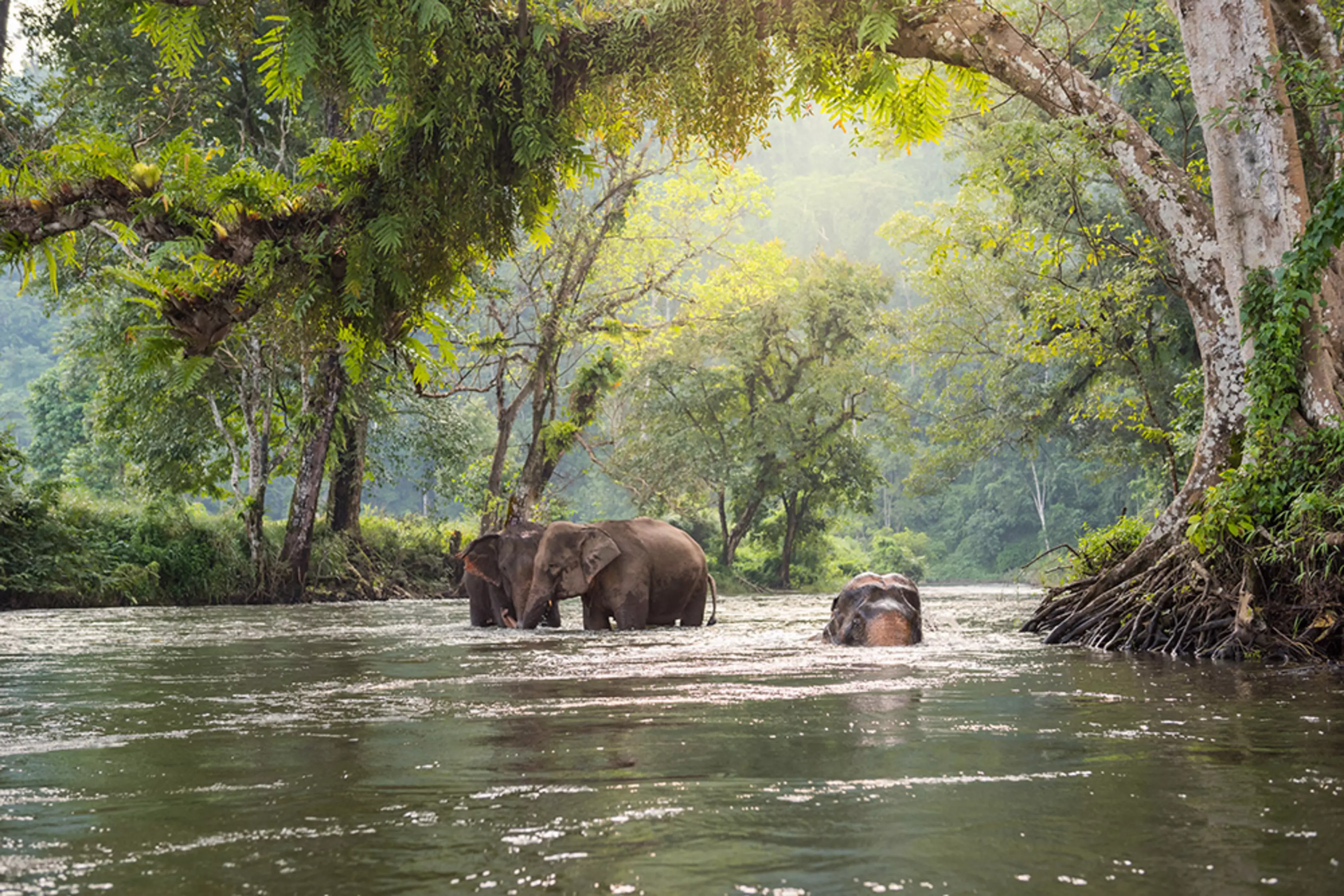
This year's World Wildlife Day focuses on a vital theme: conservation finance.
Our project in Thailand tackling human-elephant conflict is an example of how conservation finance can make a difference, creating a brighter future for both people and wildlife.

What is conservation finance, and what does the Sustainable Finance Team do at ZSL?
Conservation finance is about using financial tools and investment strategies to support nature conservation and restoration. It ensures that protecting the environment is not just a cost but also a valuable investment. By directing money into conservation-friendly activities, such as sustainable farming and carbon markets, conservation finance makes it possible to protect wildlife and ecosystems while also benefiting local communities.
At ZSL, our Sustainable Finance Team works with investors, businesses, and conservationists to develop financial solutions that help fund nature protection. We focus on redirecting capital into carbon markets, biodiversity credits, sustainable commodities, and nature-based solutions. By leveraging ZSL’s global conservation expertise, we aim to bridge the $1 trillion annual biodiversity funding gap and make protecting nature financially viable.
How do elephants usually interact with farms in Western Thailand, and what problems does this cause for local people?
In Western Thailand’s Western Forest Complex, elephants frequently wander into farms searching for food. Many farmers grow cassava, sugar cane, and bananas, which are highly attractive to elephants. When elephants raid these farms, they can cause damage to crops, leading to financial losses for local farmers.
As agricultural land expands into elephant habitats, conflicts increase. Water shortages in the forest also push elephants toward human settlements where they can find water sources. Some farms are even located along traditional elephant migration routes, making encounters more frequent. This human-elephant conflict threatens not only farmers' livelihoods but also community safety and food security.
How does agroforestry help to reduce conflict between humans and elephants in Western Thailand?
Agroforestry makes farms less attractive to elephants by changing the way crops are grown. Instead of planting large, uniform fields of elephant-favourite crops like cassava and sugar cane, we support farmers in adopting a coffee-based agroforestry system that blends different plants to create a more balanced and resilient landscape.
Key elements of agroforestry in this project include:
- Growing coffee under native trees, which provides shade, improves soil health, and captures carbon.
- Planting alternative crops such as marigold and chilli, which elephants tend to avoid.
- Creating diverse farm landscapes with natural buffers, making it less likely for elephants to enter and raid crops.
By mimicking forest conditions, agroforestry discourages elephants from entering farms, while also boosting soil fertility, improving water retention, and offering farmers a stable income.
How are ZSL and partners working together to make agroforestry a more successful and widespread solution?
ZSL Thailand is leading the project in collaboration with Human Elephant Voices Network, working closely with local farmers to develop a financially viable agroforestry model. Farmers are encouraged to transition from elephant-attractive crops (cassava, sugar cane, banana) to more sustainable alternatives (coffee, marigold, chilli). The goal is to scale this model across 2,000 hectares in Western Thailand.
This project is supported by the Nature-based Solutions Accelerator. This initiative helps overcome financial barriers to large-scale nature-based solutions, making conservation projects more investable. Through this partnership, we ensure that farmers have access to funding, markets, and expert guidance, making agroforestry a long-term solution for reducing human-elephant conflict.
What changes will this project bring to the relationship between people and elephants?
This project aims to reduce human-elephant conflict by giving farmers a more secure and profitable way to farm. By shifting to coffee agroforestry, and producing speciality ‘elephant-friendly' coffee, farmers can earn a steady income while making their land less attractive to elephants. Cooperative models help improve market access and profitability, while also creating jobs in processing, marketing, and supply chains.
Additionally, the project addresses land insecurity, which is a major challenge for smallholder farmers. By improving land lease agreements and advocating for better policies, we aim to provide farmers with long-term stability and financial security.
Beyond helping people, this project also benefits nature. Planting native trees, restoring degraded land, and sequestering carbon contribute to a healthier ecosystem. By making farming more sustainable, we hope to create a future where elephants and people can coexist peacefully.
read more about our conservation work in Thailand
If this project works well in Thailand, how could it help other places that are dealing with human-wildlife conflict?
We plan to set up demonstration farms in three different climate zones, and develop the Chang Yim Coffee Cooperative, to test and refine the agroforestry approach. Once successful, we will invite more farmers to join and expand the model to other areas facing similar challenges.
